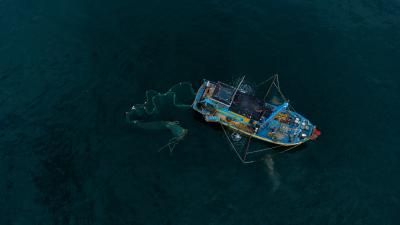The International Fund for Fishing Safety goes global – 65,000 fishers supported
The International Fund for Fishing Safety, has committed funding totaling £220,000 to support six fishing safety projects.
This page is approximately a 3 minute read
This page was published on

In February 2025, the NSRI hosted a Fisherfolk Community Project workshop in Hout Bay, Western Cape. This initiative brought together a passionate group of small-scale fishers (SSFs) to focus on safety and sustainability. As an organisation committed to saving lives and empowering communities, this project was a natural fit for the NSRI’s mission of creating water-safe environments for all.
To address the specific needs of SSFs in South Africa, the NSRI developed a tailored version of the Water Safety for Industries programme. Over four engaging and hands-on days, participants took part in:
- Water Safety Education, including national vessel safety regulations.
- Focus Group Discussions on compliance with safety regulations and their real-life challenges.
- Survival Swimming training.
- Basic First Aid Training.
The workshop, run in collaboration with the Department of Fisheries, Forestry and Environment (DFFE) and Oceana for the cohort in the Western Cape, saw 38 dedicated fishers participate. The group was diverse, ranging in age from 25 to 71 years, with 62% being male. Notably, 64% had been fishing for over five years, and an incredible 88% identified as the primary breadwinners in their families.
One of the most eye-opening findings was that 33% of participants shared that they did not know how to swim, where 13% indicated uncertainty. This highlighted just how vital ongoing safety training and support is for this community.
Caville Abrahams, NSRI Drowning Prevention Regional Coordinator, reflected on some of the biggest challenges the fishers faced during Survival Swimming training. “Some of the fisherfolk believed they could swim, but in reality, they could only perform a doggy paddle, which quickly exhausted them and prevented them from floating. We had to break down what they previously knew and teach them proper swimming and survival skills.”
Survival Swimming differs from regular swimming lessons because it focuses on real-life situations where someone may accidentally fall into the water. Caville explained, “These include staying calm, controlling breathing, orienting oneself, floating, and either moving to safety or staying afloat until help arrives. This is especially important for small-scale fishers because if they fall overboard, they need to stay calm and afloat until they can be rescued.”
A standout moment from the workshop was seeing the joy on the participants’ faces when they realised they could float – some for the very first time. Even elderly participants embraced the experience, proving it’s never too late to learn a lifesaving skill.
Through in-depth discussions led by Nongcebo Mahlalela, NSRI Drowning Prevention Researcher, fishers shared their everyday struggles with safety. Many spoke about not having the right distress equipment, inconsistencies in carrying enough fuel and water, and poor communication systems especially when reporting to skippers. A particularly revealing moment came when participants admitted they weren’t sure about the correct life jackets or whether they should always wear them while onboard.
This workshop was just the beginning. Looking ahead, it’s clear that continued survival swimming training and better access to safety equipment will be game-changers for SSFs. Nongcebo summed it up best: “Investment in longitudinal projects aimed at building survival swimming abilities would significantly improve the safety and sustainability of small-scale fishers.” With ongoing efforts, the NSRI hopes to make the waters safer for those who depend on them daily.
This article was posted on the NSRI website. To read in full, click here.